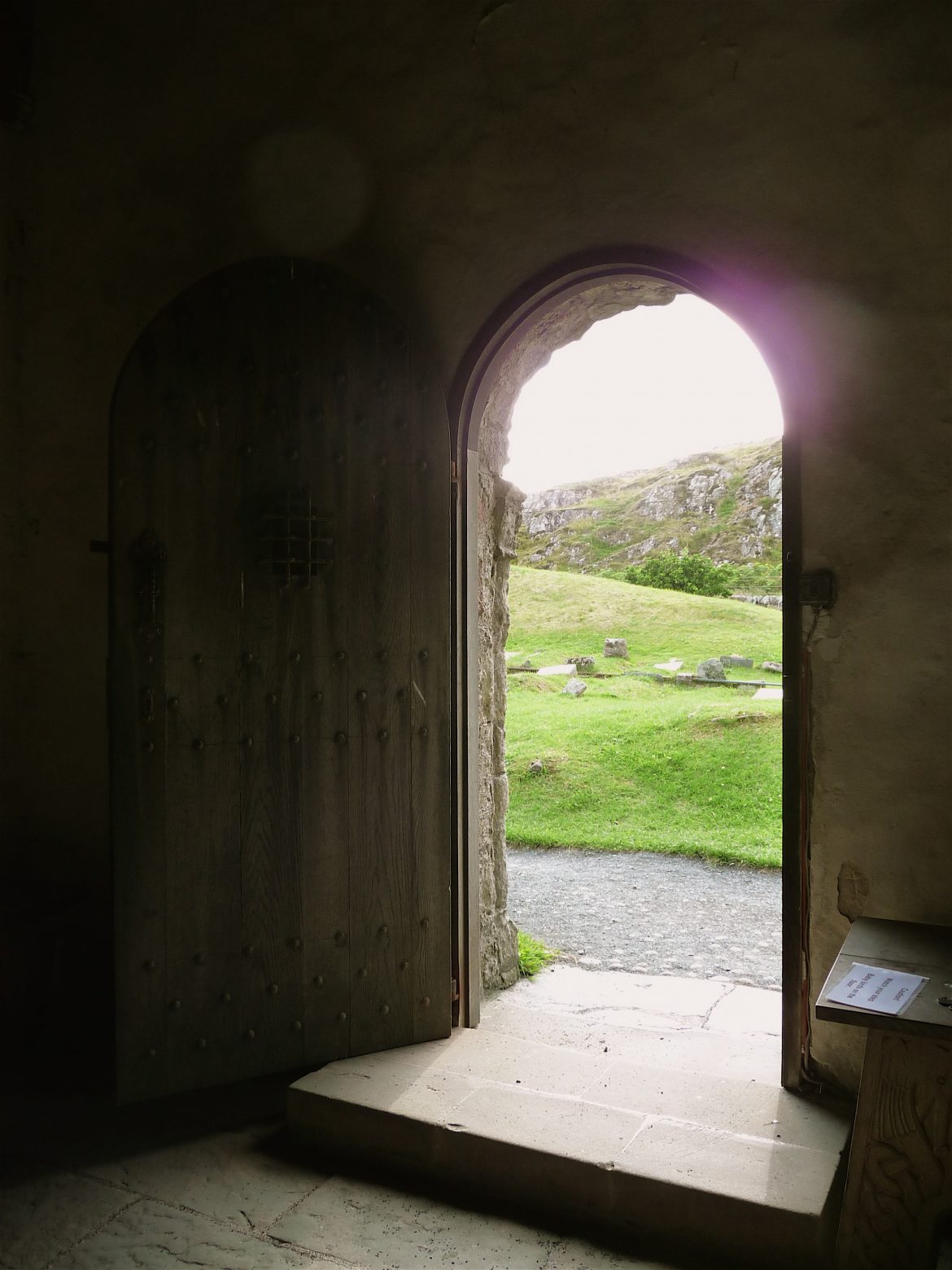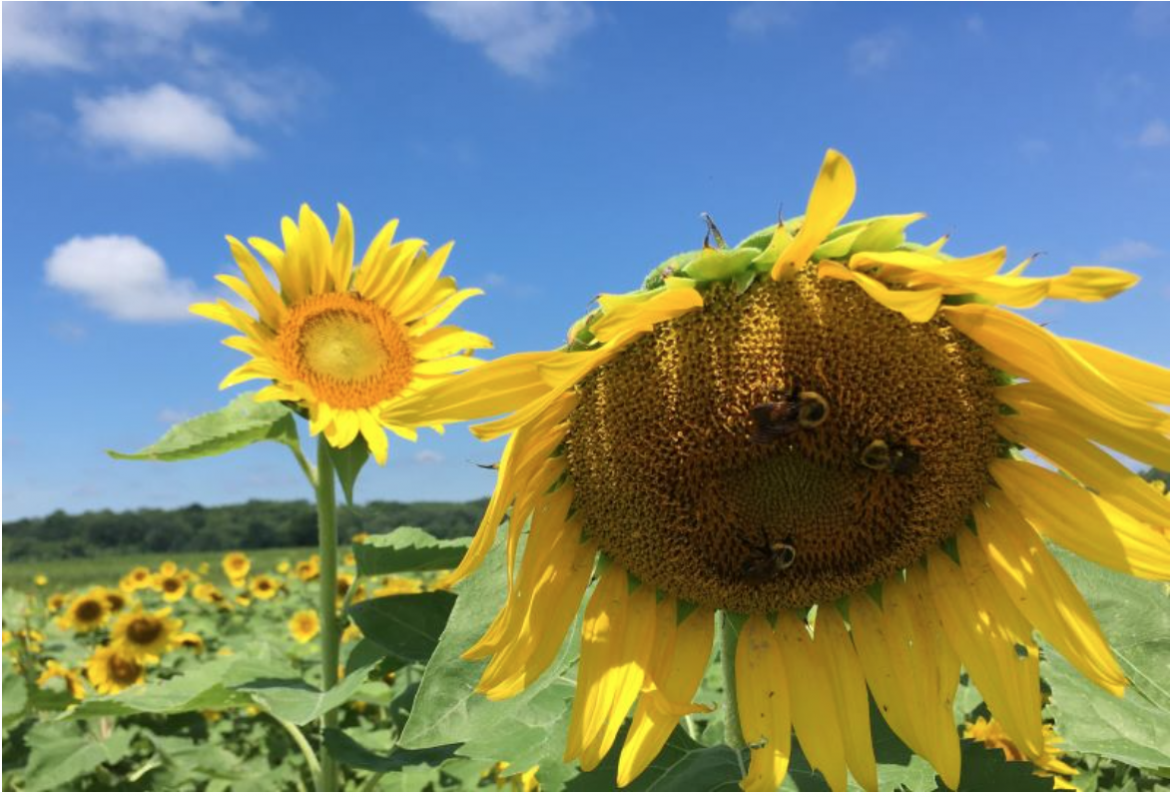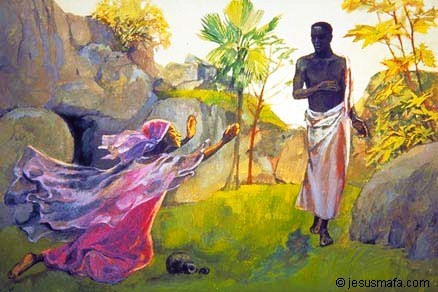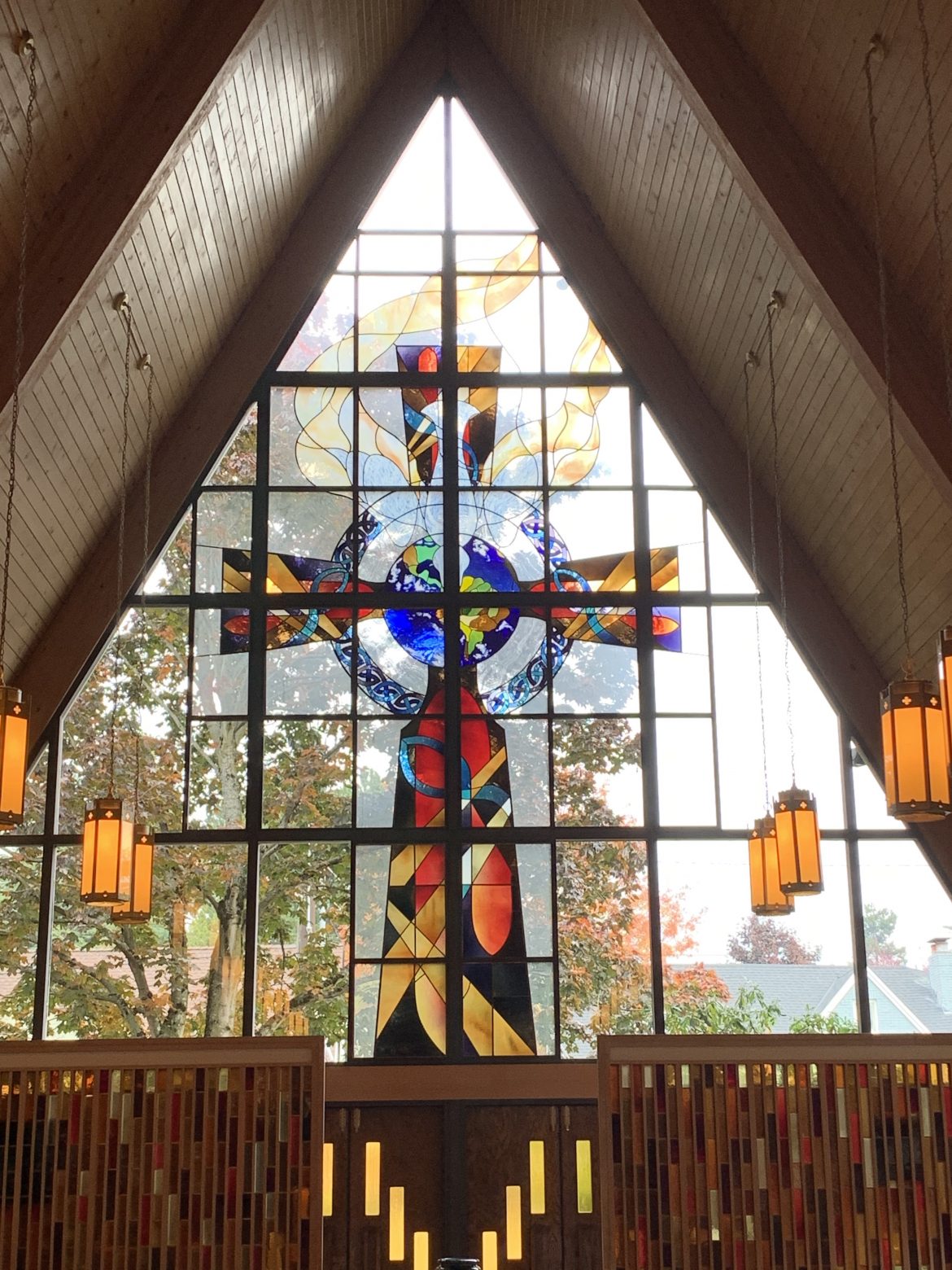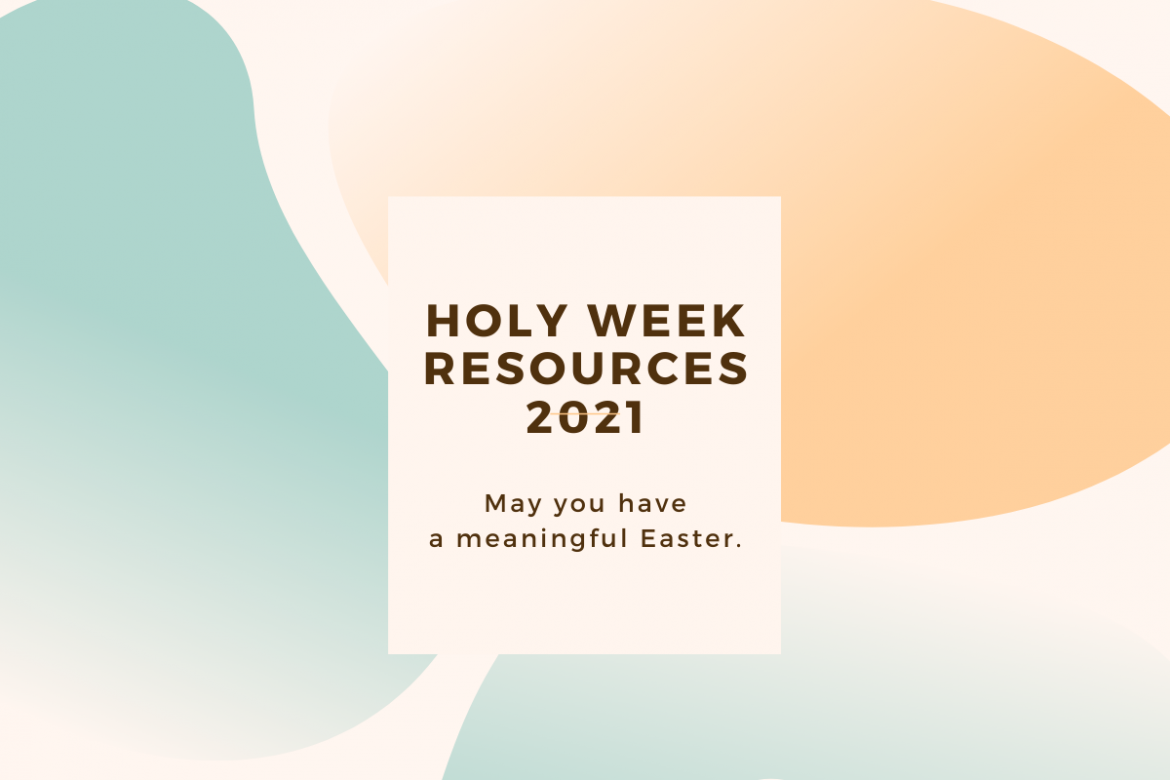We are crossing the threshold into the second half of Lent and into the second year of the pandemic. Crossing into a new place we have never been before.
I am writing this post on March 11, 2021. It was a year ago today in America we realized that the pandemic was real. It was on March 11th, that actors Tom Hanks and Rita Wilson announced that they had Covid19. It was on this day last year that the National Basketball Association suspended all games until further notice. Those two things, even more than the World Health Organization’s announcement that we were officially in a global pandemic, got our attention. Everyone started hoarding toilet paper and clorox wipes/disinfectant. It’s been a very long year!
We are all crossing the threshold into year two and carrying with us the loss, fatigue, and traumas of the last year.
We all need to take time to process this past year, and all it’s ups and downs. One way to do that is to look back through your phone and your calendar. What do you notice? What does the Holy Spirit show you about your last year?
As we cross the threshold into this next season, some people have had the gift of the vaccination, and all the hope that it brings. Some of us are still waiting our turn. Some of us feel like the waiting is going to last forever! Most of us are just exhausted by everything! School and work online, battles over masks, political division, etc. Here in USA, especially in the South, things are opening faster than I wish they would because I really do not want to go backwards! I really want to protect people who are vulnerable, and selfishly, I really want use my passport again someday soon!
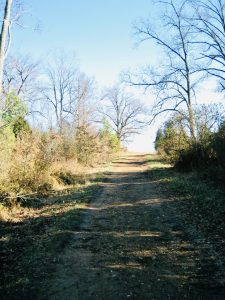
What does the Road ahead look like for you?
Here’s a quote from Bilbo Baggins in JRR Tolkien’s The Lord of the Rings
The Road goes ever on and on,
Down from the door where it began.
Now far ahead the Road has gone,
And I must follow, if I can,
Pursuing it with eager feet,
Until it joins some larger way
Where many paths and errands meet.
And whither then? I cannot say.
What does it look like for you to cross into the second year of the pandemic?
Use the doorways to consider where you are on your journey today…. Look at each photograph and consider the invitation to leave and cross the threshold into this next season with Jesus.

Closed Door

Looking through the Door
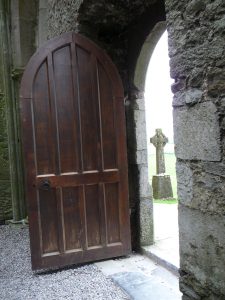
Door way open to the Cross and Suffering
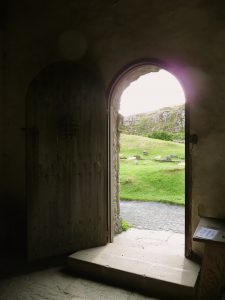
OPEN DOOR to New Life
Use the doorways to consider where you are on your journey today.
Where you are on your journey with Jesus as we head toward Easter? Are doors feeling closed? Or, do they feel open? Are you seeing life and light outside the doorstep? Are you feeling closer to Jesus? Or, has life and all its complexities slowed down your journey and your desire to draw closer to Jesus during this Lenten Season?
READ:
In Joshua 3 and 4, the children of Israel are finally making it into the Promised Land after wandering in the desert for forty years. They are crossing another threshold, the Jordan River and going into a land where everything is new once again! They are going to have to be different and follow God in a new place and in a different way. In this passage, they must follow the Ark and social distance and see the miracle of God of parting the Jordan.
Then you will know which way to go, since you have never been this way before. Joshua 3:4
In Joshua 4, they are instructed to remove 12 large stones from the place where the Ark stood in the middle of the Jordan and then build a tower of stones where they camp in the new land. These stones/rocks are to be a reminder of all God has done for them! A way to remember that God has taken them across the threshold of the river on DRY GROUND.
Some of us cross rivers everyday to get to work or to the other side of town for errands. Some of us cross bodies of water by bridges and ferry boats to visit friends or get to work when we are able. Not everyone has to cross a river or journey over a body of water, but we all go out the door each day, even if it’s just to walk the dog or take out the rubbish/trash. What does the world look like outside your door these days? Is it feeling like a new land of promise, or a battle ground of uncertainty?
We are crossing the threshold into the second half of Lent. Are you ready to head towards Easter or are you still stuck on the far side of the Jordan? Maybe like me, you haven’t gotten very far in your Lenten practices. Or maybe you haven’t even started. Know you are not behind. While people today participate in a 40 day season of Lent, originally Lent was only the days of Holy Week right before Easter. You have lots of time. Talk to Jesus about where you are. Look back at the door photos above and really consider the invitation you have to cross the threshold and go out the door towards Easter and all the Hope it brings.
You still have time to follow Jesus to Jerusalem and you have time to fall more in love with Him along the way!
TAKE TIME FOR HOPE:
- Take a walk and look for signs of hope in your neighborhood or along the way you walk.
- Journal about where you are finding hope in these Lenten days and even in these days of Pandemic.
- Create a collage about what HOPE looks like to you.
- Pray the digital Stations of the Cross
©lillylewin and freerangeworship.com
Gift of Wonder, Breath, and Celtic prayer cards are all on sale as we look forward to St. Patrick’s Day next week!
Take advantage of this sale now through March 17th.
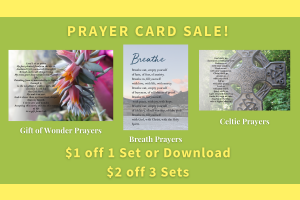
by guest writer Andii Bowsher,
When I was at school, we had an assistante come to help us to learn French. When it came time for her to leave, I recall having a brief conversation in a corridor in which she said, “Maybe I will come back to visit you.” Immediately, I said unreflectively, “Me?”. If my French at that time had been up to it, it would be less embarrassing to recall because I would have heard her say ‘vous’ rather ‘te’ and understood that she had the whole school in mind.
Many of us English-speakers tend to make a similar mistake in reading Scripture, reinforced by our culture which trains us in a relentless focus on the personal and individual; distracting us from the social and ecological dimensions of our existence.
This bias in our reception of scripture shows up reading the letters to the churches in Revelation 2-3. They each start with a singular you (‘thou/thee’, Greek su/soi) but end with the plural (Greek humeis/humas) and somewhere in the middle they transition from one to the other. The singular is the Angel addressed, the plural comes about because, for the Angel to respond and repent, the people who constitute that angel have to act in their own persons. This is one of the clearest places in scripture to illustrate the ancient way of thinking about social and political entities as having their own spiritual identity even while physically being constituted by people and artefacts. (Perhaps you’ll be familiar with this from Walter Wink’s Naming the Powers).
I keep coming back to a scene in Cronin’s The Citadel where two medics blow up a sewer to counteract typhus which the local authorities are reluctant to address adequately. I’m reminded also of the town of Flint, its water and its political entanglements. Sometimes to heal is to confront the Powers that be.
Now I find myself thinking about the pandemical situation we’re in. Amidst all the arguing about masks or social restrictions, we learn that dealing with a potentially dangerous virus cannot be just an individual thing. Here is a tiny entity that relies on our sociability, our un-aloneness, for its continuing existence. The words ‘public health’ really take on meaning: health or illness is not just ‘me and my physical condition’ but is also about how we organise things in society; how we support those who are vulnerable or who have to do things for the common good; how we each play -or refuse- our part.
So, in our culture, we Christ-followers must redouble our efforts to recall that we are dust (Gn.2:7), that we are “not alone” (Gn.2:18): we are dynamically interwoven materially, psychologically and indeed spiritually with matter, life, and other minds. Healing implicates all of these. Much of the corporate, psycho-social dimensionality concretises as “powers and principalities” -corporate beings made up of us (and other stuff) held in shape by the various forces of power running through emotions of love, fear, pleasure, pain, joy, despair, loyalty… Our healing as individuals is so often tied up with the health of environment, relationships and the bodies politic we belong to.
Responding to the issues rightly foregrounded after the murder of George Floyd, I convened a group for recovering from white privilege. We meet together to understand and unpick the ways that privilege and racist assumptions have become part of us. As we notice how our culture has formed our assumption and unconscious -unwanted- biases, as we re-learn the Christian virtues of humility, truthfulness, courage and neighbour-love, we disentangle ourselves from the baleful grip of the Powers.
To heal and be healed in a world of powers, we can start by asking ourselves questions. Perhaps these are for journalling?
What bodies am I part of? -That is, what bodies do I help to constitute through my presence (irl or virtual), my effort, my money?
How have I been influenced and formed by them and how have they co-opted me?
How far has my incorporation been willing and how far unconscious?
Where they bring ill, how does my involvement work and how can I best lean away and influence them for good? Do I need to ‘unincorporate’ myself?
Who are allies to change them or myself?
Bio for Andii Bowsher
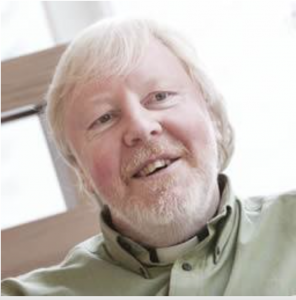
I like to play: with my grandchildren, with language(s), with ideas, arts, liturgy and spirituality. Having bikes means that my spouse and I get to enjoy the great outdoors and exercise. When I’m not co-ordinating chaplaincy work at a university in the north-east of England, I help ministers-in-training to learn about mission and ministry. Involvement in spiritual accompaniment is increasingly turning towards questions of how to support people working through climate activism and environmental grief and spills over into liturgy and ritual. My own spirituality has the Lord’s prayer as its main touch-point and is suffused with greenery. Visit ourcommonprayer.org for examples of how some of these things come together.
Gift of Wonder, Breath, and Celtic prayer cards are all on sale as we look forward to St. Patrick’s Day next week!
Take advantage of this sale now through March 17th.
by guest writer Cathy Jarrell, photo also by Cathy Jarrell,
The Lord God took the man and put him in the garden of Eden to work it and keep it. ~~ Genesis 2:15 ESV
Today, during an unusually warm winter day, I glanced through the window and saw honey bees swarming the bird feeder. Curious about what I was seeing, I read that at the end of winter, before pollen is readily available, bees will use the dust from cracked corn as a protein source for the bee bread they produce to feed their larvae. How magnificent! I had just filled the feeder with a combination that includes cracked corn. I quickly filled a dish with more and left it on the ground near the feeder. Before I could even step away, the bees swarmed and filled the dish.
Was it my imagination, or did they expect and appreciate my help?
Okay, maybe that’s going too far. I do get carried away with nature sometimes. Still, my small involvement in the bees’ work of providing for their colony filled me with joy. More than that, I felt like I was acting in partnership with them. I began to imagine the consequences of helping them find food. What could happen? Possibly, the colony might raise more young honeybees, or healthier bees, which could mean more pollination, which would contribute to more plant diversity and abundant food sources essential for survival of many species on earth, including us.
During a time of pandemic, many of us have felt so helpless. Our problems seem so large, but our ability to act is so constrained. We seek healing for ourselves and for the troubles that loom over our daily reality. We look to God to help us heal our fractured existence. What would God’s help look like?
I keep thinking of how good it felt when the bees responded to my food contribution. Is that something like what God had in mind in choosing humans to tend and keep the earth’s first garden in the Genesis story? Our active participation in the mystical cycle of creation spirals out into all the world in ways that we cannot fully imagine. Of course, as we know too well, our actions can spiral out into the world for good or for evil done to God’s good creation. But there is more to it than that. Our actions also spiral inward, affecting the state of our own souls. My very small act of participation in helping the bees made me feel connected, whole, and joyful. It was a moment of healing that makes me crave more, and so I will do more. Each act of care for our world reaches far out into creation in ways I cannot imagine and, perhaps, helps heal in ways that only God can see.
This is certainly not a new idea, but I’ve begun to think of helping all of God’s creation as a kind of healing spiritual discipline. I already do many things to help the environment, but I’m changing my mindset to think of them as regular acts of devotion to God, just as I regularly pray, worship, and serve others. For that matter, perhaps my actions to help the environment really are acts of love and service to others. After all, when I pray, I trust that God will work some transformation. I don’t understand the transformation that occurs, I just know that it does occur and is multiplied. I also know that the act of praying itself is healing. It follows, then, that I can also trust that God will take my efforts to keep plastic out of the environment, to tend pollinator-friendly garden plants, and to use fewer resources and transform and multiply those efforts, all for the benefit of every living thing.
In a time of pandemic, when we must limit our exposure to one another, I have found that I can still do some good, and I can still be intimately involved in life around me. Even if my small actions do not seem evident right now, they will multiply, especially if everyone else does the same. The sum of many small things by many people, done in a disciplined manner over time, can heal the earth and heal us, too.
Did the bees really expect my help? Did they really appreciate my participation? The more I think about it, the more I think the answer is yes. After all, they, too, were in God’s garden and heard God’s instructions to us to tend and keep it.
Reference: Miller, J. (2021, February 27). Why are Honeybees at My Bird Feeder? Mother Earth News. Retrieved from https://www.motherearthnews.com/homesteading-and-livestock/why-are-honeybees-at-my-birdfeeder-zbcz2004
Bio for Cathy Jarrell
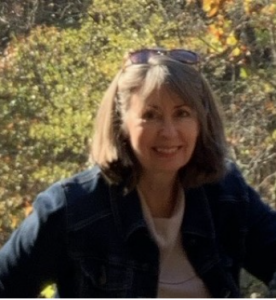 Cathy Jarrell is a retired medical writer, editor, and publisher. She enjoys nature walks with her husband, Sam, at their home in Saint Charles, Missouri, USA. Cathy enjoys many artistic pursuits, including painting and photography, mostly centering on the beauty of the natural world. Her primary writing interest concerns the intersection of human life and the natural world.
Cathy Jarrell is a retired medical writer, editor, and publisher. She enjoys nature walks with her husband, Sam, at their home in Saint Charles, Missouri, USA. Cathy enjoys many artistic pursuits, including painting and photography, mostly centering on the beauty of the natural world. Her primary writing interest concerns the intersection of human life and the natural world.
Gift of Wonder, Breath, and Celtic prayer cards are all on sale as we look forward to St. Patrick’s Day next week!
Take advantage of this sale now through March 17th.

by Lisa DeRosa
Today, I needed to remember that God’s power is greater than the struggles and weariness in my life, the pain that I am processing, and the diseases that loved ones are battling.
Exodus 34:5-7 says:
5 Then the Lord came down in a cloud and stood there with him; and he called out his own name, Yahweh.[a] 6 The Lord passed in front of Moses, calling out,
“Yahweh![b] The Lord!
The God of compassion and mercy!
I am slow to anger
and filled with unfailing love and faithfulness.
7 I lavish unfailing love to a thousand generations.[c]
I forgive iniquity, rebellion, and sin.
But I do not excuse the guilty.
I lay the sins of the parents upon their children and grandchildren;
the entire family is affected—
even children in the third and fourth generations.”
I wrote the following prayer to remind me of who Yahweh is and knows, cares, and listens when I cry out.
Great Physician,
You have mighty healing hands,
gentle enough to comfort,
strong enough to hold the whole world.
You perform works of transformation
in humble, repentant hearts.
You take appointments at all times of the day and night.
You do not fear or tremble when a rare case arises,
and You do not leave when the diagnosis feels like too much to bear.
Almighty Healer,
You promise Yourself and saving grace,
not a cushy, trial-less life;
we grieve, we suffer, and we are weary.
But You are here in our sorrow, our pain, and our weakness.
You see our scars and know each detail behind them.
Merciful Comforter,
in our midst, in our unbelief,
reveal Yourself to each of us in a way that shows Your unfailing love.
Provide sweet moments of rest, peace, and refreshment for our souls, we pray.
All this we ask as Your children, fearfully and wonderfully made,
to the God of Salvation, Redeeming Love, and who is worthy of All Praise,
in the precious name of Jesus, Amen.
Take a few moments to reflect on the mightiness of God. As you understand Yahweh today, which characteristic stands out to you? Which one are you most in need of? Maybe you need comforting in your sorrow or rest for your weary heart. Ask God for this.
Give yourself permission to rest in God’s love, comfort, mighty hands, or whatever you need. Allow God’s healing to enter into the places that are torn, tattered, darkened, or hardened by the circumstances and hardships in this life. Nothing will surprise the All Knowing One. Nothing will offend the Divine One. Be where you are today. God welcomes you where you are today. You are on a journey and there is grace offered to you in this journey. Yahweh’s grace and love abound today.
Humbly ask God to be everything that you need. As the Great Provider, believe that God is willing and able to provide for what you need today. Despite how large or small the request, trust that it is not falling on deaf ears. Don’t allow pride to get in the way of God’s call on your life today. Release the need to fix yourself, others, or your situation. Surrender to the Holy One who hears you and can transform your heart.
This song by Tenth Avenue North has helped me through many journaling and processing times when I need to accept the healing that God is beginning in me. I hope it helps you as it has helped me.
Gift of Wonder, Breath, and Celtic prayer cards are all on sale as we look forward to St. Patrick’s Day next week!
Take advantage of this sale now through March 17th.
by Christine Sine
Today is International Womens Day, a day for celebrating the social, economic and political achievements of women. It was first celebrated in 1911 when women in most parts of the world still had few rights. As I reflect on this day, I am always reminded of my own challenges for equal acceptance within society and the church as well as the often overwhelming obstacles that other women have faced and still face in the battle for freedom.
One of those I always reflect on is Mary Magdalene. She has become one of my favourite New Testament figures. Because of that, I have decided to repost the article I wrote several years ago about her. I find as I reread it, it challenges me once more to consider this issue. It is another one of those places that we still need to find healing.
 Mary Magdalene is one of the most misused and abused women in the Bible, a fitting symbol for women throughout the ages who are still misused, abused and blamed. Mary Magdalene was one of Jesus’ most dedicated followers. She was present at his crucifixion and the first to see Jesus after his resurrection. Yet what most of us believe when we think of Mary Magdalene is a “fact” for which there is no evidence. She is remembered as a prostitute rather than as the faithful first bearer of the Good News, whom some would elevate to the level of apostle.
Mary Magdalene is one of the most misused and abused women in the Bible, a fitting symbol for women throughout the ages who are still misused, abused and blamed. Mary Magdalene was one of Jesus’ most dedicated followers. She was present at his crucifixion and the first to see Jesus after his resurrection. Yet what most of us believe when we think of Mary Magdalene is a “fact” for which there is no evidence. She is remembered as a prostitute rather than as the faithful first bearer of the Good News, whom some would elevate to the level of apostle.
Why do we so easily believe this? Part of it is because there are so many Marys mentioned in the New Testament that it is confusing. However, though her prominence in the story of Jesus probably began to deteriorate shortly after her death, the transformation to penitent prostitute was only sealed on Sept. 14, 1591, when Pope Gregory the Great gave a homily in Rome that pronounced that Mary Magdalene, Luke’s unnamed sinner, and Mary of Bethany were, indeed, the same person. And it is easier for a male dominated church to accept a prostitute than a female leader.
We easily forget or ignore the fact that other women, too, played a prominent part in the leadership of the early church. Sadly, as Christianity became more mainstream it also became more patriarchal and the roles of women as disciples, elders and leaders (some even say as apostles) was quickly overlooked or reinterpreted.
We Like to Keep Women In Their Place
We still like to think the worst of women and want them to “keep their place”. Like most women in leadership, I am quite familiar with this. As a young doctor, I was told it was wrong for me as a single woman to earn more than a married man, and I was, on several occasions, refused positions of leadership just because of my gender. Even now, I often feel that when I walk into a gathering of male leaders I may as well be a fly on the wall. I feel as though I have to shout to make myself heard.
The church is often at the forefront of abuse and discrimination towards women. When Sarah Bessey started a Twitter conversation using the hashtag, #ThingsOnlyChristianWomenHear in 2017, it took off in a way few expected and the conversation rippled round social media for months even before the #MeToo movement took root. Women shared stories of rape, abuse, and sexism in the church and how the bible was used to justify these things and keep them quiet. Men blamed women for not submitting to their husbands or leaders or just for wearing provocative clothing. “They deserved to be raped”, some said.
More recently, we all watched the furore in the Southern Baptist church as Beth Moore spoke out about sexism in the church, as well as the often very heated discussions about whether David raped Bathsheba. In his Christianity Today article: Why It Is Easier to Accept David as A Murderer Rather Than A Rapist, Kyle Worley states: “We don’t want David to be a rapist. We actually find it easier to stomach him being a murderer of a man than an abuser of a woman.” This kind of an attitude seems to pervade both the church and our society in so many ways.
Who Are the Women that have Impacted your Life?
Many women have impacted my life. There are those who lived in the past when it was not easy for women to speak out in society – like Elizabeth Fry, the English Quaker who in the early 1800s became well known as a prison reformer and social activist. Another was Daisy Mae Bates, a controversial Irish Australian journalist who made a name for herself in late 19th century Australia as a welfare worker and lifelong student of Australian Aboriginal culture and society. She was known among the native people as ‘Kabbarli’ (grandmother). Still another is Gladys Aylward who became a missionary to China in spite of being rejected by the China Mission Center in London. In October of 1930 she set out from London with her passport, her Bible, her tickets, and two pounds ninepence, to travel to China by the Trans-Siberian Railway, despite the fact that China and the Soviet Union were engaged in an undeclared war. She is best known for her trek across the mountains with 100 Chinese children during the war, a story immortalized in The Inn Of the Sixth Happiness.
Others are women I know today whose lives continue to inspire and encourage me. Like Wangari Maathai, an environmental and political activist who, in 2004, became the first African woman to receive the Nobel Peace Prize for “her contribution to sustainable development, democracy and peace.” Another is Edith Yoder – Executive Director of Bridge of Hope an organization that works to end homelessness by surrounding single parent moms with a church support team.
There is the young woman whose name I don’t even remember who worked alongside me in the refugee camps on the Thai Cambodian border as a Khymer medic. She had little training but her dedication and compassion not only impressed me but saved the life of many of her country men and women. One day she confided in me: “Your being here gives me hope that one day my daughters will have the same kind of freedom that you have.” I have met many others like her around the world who struggle to survive in a world that often abuses, overlooks and discriminates against them. Fortunately, though I may not know their names, I am sure that God never forgets who they are or the good contributions they have made to our world.
Some think that singling out women and their achievements like this is outdated and even obsolete. I suspect they are unaware of how many women still struggle to be treated as equals. The commemoration of a day like this which has fostered massive change, not only for women, but for children, the underprivileged and victims of discrimination still gives hope to those who long for freedom. Its achievements cannot be forgotten or taken for granted. While 60 percent of the world’s poorest are female, 10 million more girls than boys do not attend primary school, and violence against women kills and injures as many women as cancer, International Women’s Day continues to be a relevant and vital encouragement toward liberation.
What Is Your Response?
As you can tell, this is an issue that is very upsetting for me and I pray that you will forgive me. However, I believe that Jesus brings the freedom of equality to all persons and where we see inequality we all need to speak out. As Galatians 3:28 says, There is neither Jew nor Gentile, neither slave nor free, nor is there male and female, for you are all one in Christ Jesus. Biblical scholars have told me that this was one of the creedal texts of the early church, so why do we not believe it? The gender gap is still very obvious not just in our world, but in God’s family.
Watch this video and consider these maternal images of God. (You will find the full text in this post) How do they make you feel? What is your response?
Now prayerfully consider your own response, firstly to Mary Magdalene and Bathsheba, then to women in your life. Are there misconceptions in your views of them? Are there ways in which you discriminate against women by not treating them as equals?
Note: As an Amazon Affiliate, I earn an amount on qualifying purchases. Thank you for your support for Godspace in this way.
Check out our newest Godspace Course called Time to Heal which features sessions with Christine Sine, Lilly Lewin, and Bethany Dearborn Hiser.
Another beautiful contemplative service from St Andrews for the Third Sunday of Lent. Enjoy!
A contemplative service with music in the style-of-Taize for the Third Sunday in Lent. Carrie Grace Littauer, prayer leader, with music by Kester Limner and Andy Myers.
Permission to podcast/stream the music in this service obtained from One License with license #A-710-756 with additional notes below:
“The Law of God is Love” – composed by Kester Limner shared under the Creative Commons License, Attribution (CC-BY).
“This is My Father’s World” – public domain lyrics by Maltbie Davenport Babcock, 1901. Alternate arrangement by Kester Limner, shared under the Creative Commons License, Attribution (CC-BY)
“Atme in Uns” and “Kyrie” are from the Taize community in France. All rights reserved by GIA/Les Presses de Taizé.
“Lay Me Low” is a musical setting of a Shaker text is by organist and composer Daniel Schwandt, Music That Makes Community, 2013. © 2013, admin Augsburg Fortress.
Thank you for praying with us!
It’s only a few weeks until Easter and we thought we would highlight some of the Holy Week resources and links that are available through Godspace.
Resource Lists: Updated for 2021
- Resources for Palm Sunday
- Resources for Maundy Thursday
- Resources for Good Friday
- Stations of the Cross Resource List
- Resources for Celebrating Holy Week With Kids
- Resources for Easter Sunday
- Kid Resources for Easter
Holy Week Posts
- Holy Week at Home: Praying with a Centerpiece by Lilly Lewin
- Celebrating Holy Week at Home
- Prepping for Holy Week at Home by Lilly Lewin
- Palm Sunday at Home
- A Resource List for Holy Week by Paul Neeley
- Holy Week with Jeff Johnson – Music
FREE DOWNLOADS!
Check out other resources available in our resource center.
As an Amazon Associate, I receive a small amount for purchases made through appropriate links.
Thank you for supporting Godspace in this way.
When referencing or quoting Godspace Light, please be sure to include the Author (Christine Sine unless otherwise noted), the Title of the article or resource, the Source link where appropriate, and ©Godspacelight.com. Thank you!

